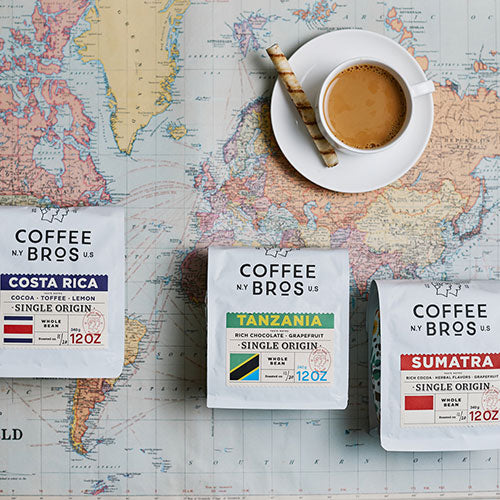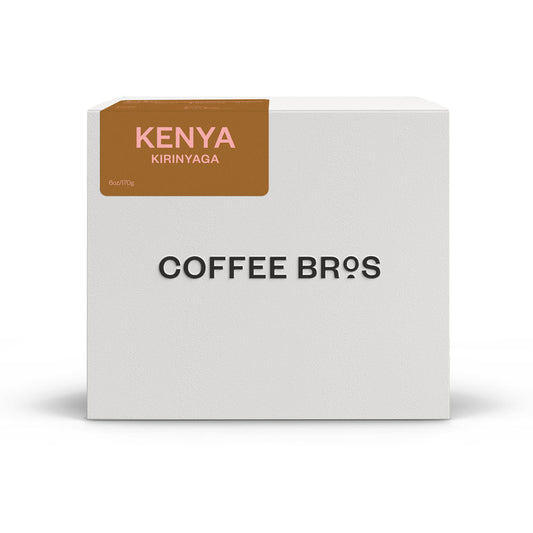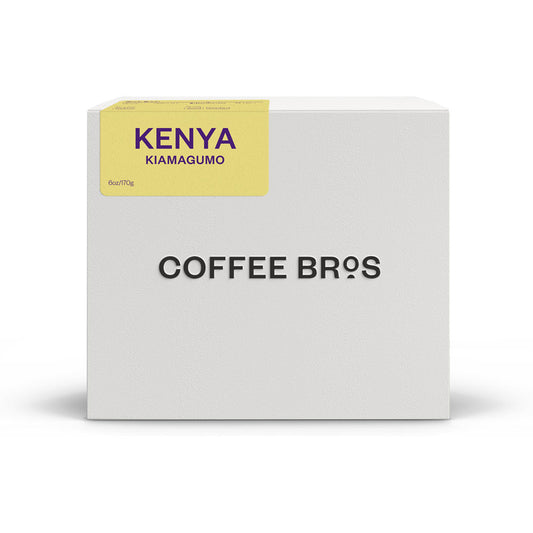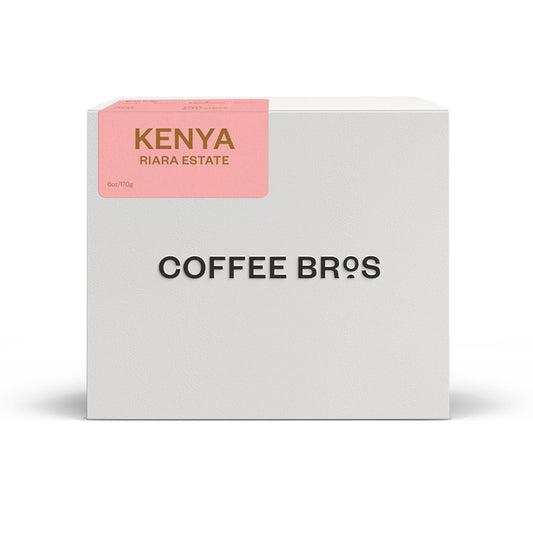Collection: Kenya
-
Sold out
Kenya AA | Kirinyaga | Washed
An adventurous coffee with notes of plum, cocoa, and lemon
An adventurous coffee with notes of plum, cocoa...
Regular price From $12.89Regular priceUnit price / per -
Kenya Peaberry | Kiamagumo | Washed
An adventurous coffee with notes of plum, cocoa, and lemon
An adventurous coffee with notes of plum, cocoa...
Regular price From $12.89Regular priceUnit price / per -
New
Kenya AA | Riara Estate | Washed
An adventurous coffee with notes of plum, cocoa, and lemon
An adventurous coffee with notes of plum, cocoa...
Regular price From $12.89Regular priceUnit price / per
Collections
-

All Coffee
Experience the best specialty coffee with our selection of Signature Series, Single-origin,...
-

Single Origin
All of our single-origin coffees in this collection are 86+ point coffees...
-

Signature Blends
Our Signature Blend coffees showcase unique flavor profiles that shine across any...
All About Coffee from Kenya
What is the history of coffee in Kenya?
Kenya has a rich and complex history with coffee, despite being one of the last places to be planted with coffee, nearly 300 years after its first cultivation. The first coffee plants were brought to the country by Scottish and French missionaries, who brought different strains from Mocha and French Mission Bourbon. Kenya became a coffee powerhouse as a way for the British empire to control both the tea and coffee markets worldwide, and after independence in the 1960s, coffee became increasingly important to small landholders. Today, 85% of coffee farms in Kenya are owned by natives, with the majority being small plots tended by farmers who bring cherry to central mills for processing and export. Although coffee is not a popular drink in the homes of most Kenyans, cafe culture exists for tourists and in major cities.
How is coffee typically sold in Kenya?
There are two main methods of selling coffee in Kenya: the auction system at the Nairobi Coffee Exchange and direct sales, also known as "Second Window." The auction system, established in the 1930s, has evolved from an open bidding process to a largely silent system where agents compete to buy the most desirable coffees available each week. The system involves coffee estates or co-operatives working with marketing agents who charge a fee, tender coffee samples to bidders, and participate in the auction held on Tuesdays in Nairobi. The government also imposes a tax on the sale of coffee. "Second Window" allows farmers and buyers to negotiate prices outside of the auction, often before or during the harvest. Some exporters also purchase coffee directly from mills based on previous auction prices for specific grades (AA, AB, PB, etc.).
What coffee processing methods do they use in Kenya?
The most common method of processing coffee in Kenya is "Kenya Washed," which involves washing the coffee beans and soaking them for an extended period of 12 to 72 hours.
What are the common coffee varietals in Kenya?
The most widely grown coffee varieties in Kenya are SL-28, SL-34, French Mission Bourbon, Ruiru 11, Batian, and K7.
What is the SL-28 and SL-34 coffee varietal?
SL-28 and SL-34 varietals which tend to have unmatched sweetness with a dynamic flavor profile. SL-28 is among the most well-known and well-regarded varieties of Africa. It has consequently spread from Kenya, where it was originally planted in the 1930s, to other parts of Africa and now to Latin America.
How is coffee in Kenya graded?
Green coffee beans from Kenya are graded based on size for roasting consistency. The grading system ranges from E to C and doesn't affect quality, which is determined by the "Class" system ranging from 1 (worst) to 10 (best). The E grade includes the largest beans, including peaberry (PB) and AA beans, with AA being considered one of the finest specialty coffees in the world. Kenya AA is known for its bright, floral aroma and crisp acidity, while Kenya AB is also a premium coffee and is typically the most plentiful in a shipment.
Where are the most common coffee growing regions in Kenya?
The most common coffee-growing regions in Kenya include, Bungoma, Embu, Kiambu, Kirinyaga, Kisii, Machakos, Mt. Elgon, Murang’a, Nakuru, Nyeri, Taita Taveta, Thika, and Tran-Nzoia.
When does the coffee harvest begin in Kenya?
The harvest period for coffee in Kenya is during the main or late crop which is from August to January, and the fly or early crop which is from April to July.
What makes coffee from Kenya so special?
Kenyan coffee is renowned for its exceptional flavor profile, driven by its distinctive acidity. The coffee grown in different regions of Kenya exhibit a variety of flavor characteristics, such as juicy and tart in Nyeri, dark fruit and brown sugar in Embu, and floral notes in Kirinyaga. The classic Kenyan coffee varieties, SL-28 and SL-34, were selected for their quality and suitability for cultivation by Scot Laboratories in the 1930s. The modern hybrid variety Ruiru 11, which is a combination of Timor Hybrid and Rume Sudan, is known for its resistance to coffee-berry disease.
- Choosing a selection results in a full page refresh.







